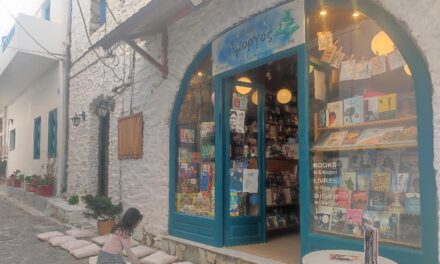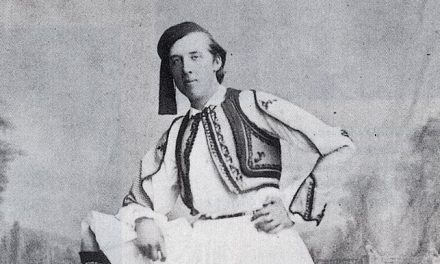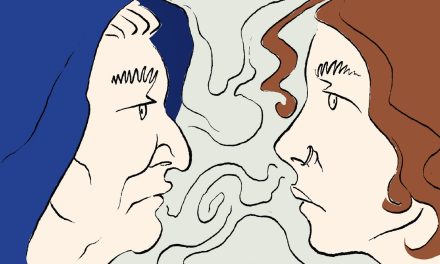Greek poet Maria Laina is one the most important voices of the so-called ‘Generation of the 1970s’, a generation of Greek poets born into a war-ravaged Greece, and who came of literary age under the military junta (1967-1974). Her work includes nine poetry collections, eleven theatrical plays, five prose books, four critiques and studies, an anthology of 20th-century poetry (a selection of Greek translations).
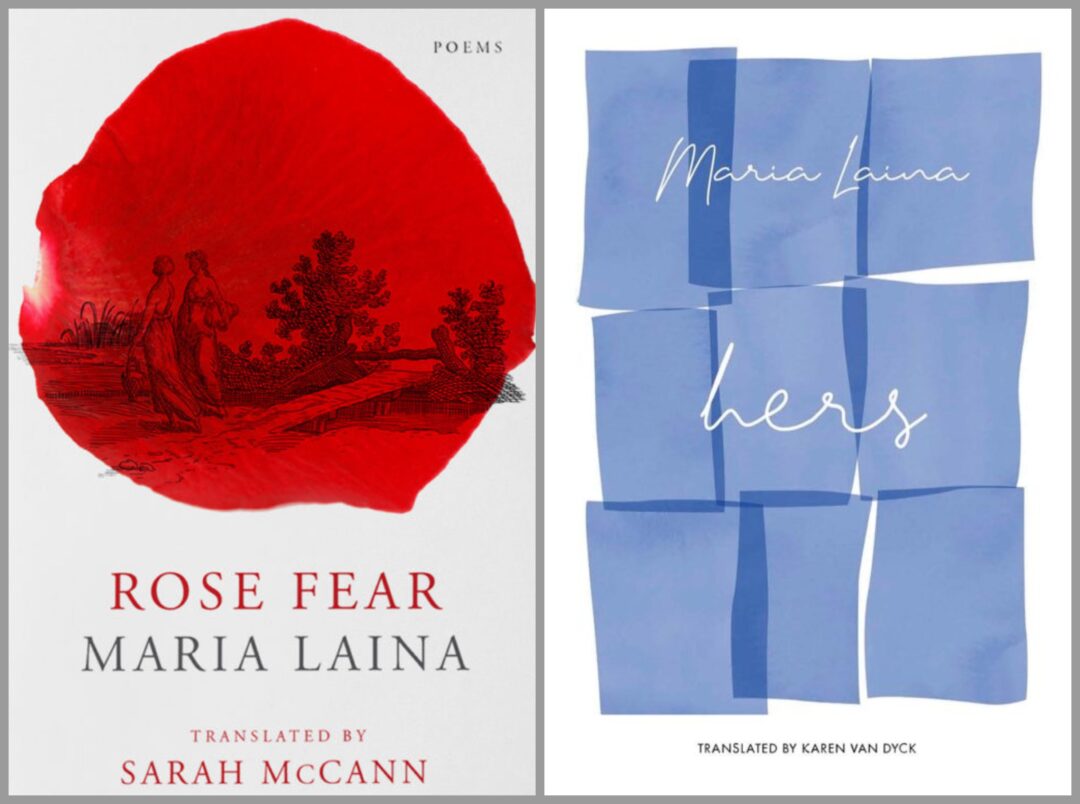
A moving, vivid collection of verse, Rose Fear (World Poetry Books, 2017) is Laina’s first stand-alone English-language collection. Deftly translated by Sarah McCann, it follows in the Sapphic vein: fragmented, prophetic, and emotionally charged. Like a grim fairytale, Laina’s silvery lullaby lyricism morphs into beautifully dark chants and hanging, haikulike scenes as it moves between voices and scraps of stories, complicating and recoloring the feeling of fear itself.
In the words of Christopher Merrill, “What a wealth of insight and emotion Maria Laina can pack into just three lines of verse: ‘On arid land / I spread out my garden / until my mouth fills with laughter.’ And in Sarah McCann’s dexterous translation of Rose Fear we discover once again what vitality and power can accrue from the art of compression. ‘Beware of this dark woman,’ the poet warns, ‘for she is galloping before you’.” Indeed, there is tenderness never to be daunted, never to be diminished in the poetry of Maria Laina.
In Hers (World Poetry Books, 2022), Maria Laina presents an ascetic yet autoerotic treatise on love at odds with societal norms. Who is sketching this life and who is watching it being sketched, and who is watching it being lived? The poems report back on what goes on in the spaces between. “Somewhere between the self and the mirror, the real and the invented, the dead and the living, etched in the color of charcoal. Sometimes the drawing goes outside the lines. Sometimes the beauty and simplicity of the movements is overwhelming in the most voluptuous way. A swarm of voices passes over you. You know everything and nothing,” as Eleni Sikelianos eloquently put it.
In the words of A.E. Stallings, “Hers is a book at once abstract and grounded, elusively cerebral and erotically charged, like flashes of images in splinters of a broken mirror, a minimalism that reflects and refracts. The surface simplicity of these poems arguably makes them all the more difficult to render into English, but Karen Van Dyck has deftly brought them into a transparent idiom that lets their mystery shine through.” Indeed Van Dyck rendered Laina’s Greek into still, metitative moments reflecting the self-confidence of a woman on the early end of middle age.
The poet
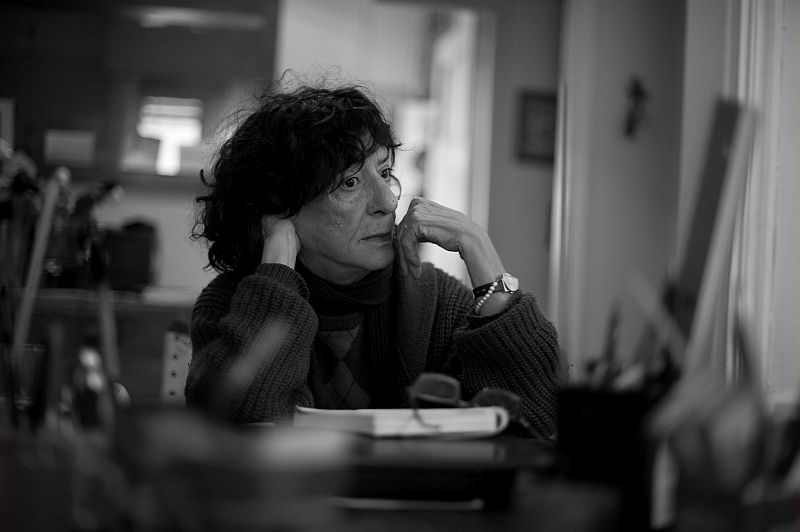
Maria Laina (1947-2023) was born in Patras. She studied Law at the University of Athens. She worked in various jobs, all related to art (translation of essays and literature, edition of artistic, philosophical and literary books, broadcasts and screenplays on state radio-television, teaching Greek language and poetry in English colleges, teaching translation, writing in newspaper literary columns). Her books have been translated in various languages, either on their own or as part of anthologies.
She officially represented Greece both in the US and Europe on several occasions. In 1993 she was awarded with the State Prize for Poetry for her collection Ρόδινος Φόβος [Rose Fear]. The German translation of the book by Dadi Siveri-Speck received the Munich Award in 1995. She also received the Cavafy Award in 1996 and the Maria Callas Award by ERT (Third Programme) in 1998. In 2014 she received the Kostas and Eleni Ourani Award of the Academy of Athens for the entirety of her work, while she received an honorary distinction for her contribution to letters and arts by the University of Patras, her birth place.
A.R.
Read also: Reading Greece: Maria Laina on Poetry as the Pre-Eminent Vehicle of Feeling and Emotion
TAGS: LITERATURE & BOOKS | READING GREECE

